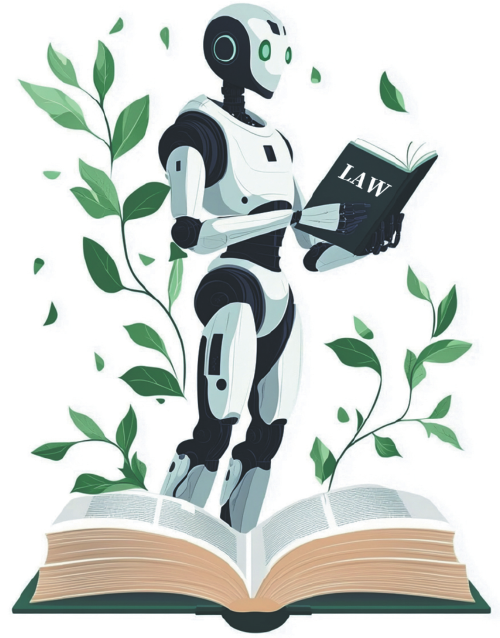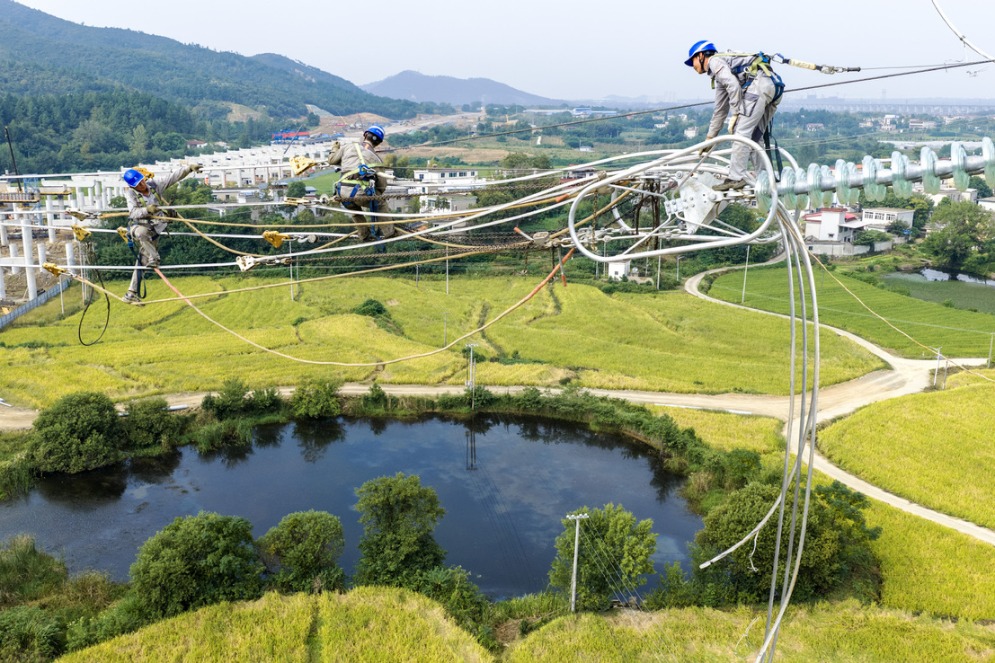Case in point
China's moves to put AI within a legal framework offer guidance and inspiration for other countries


The Global South is often dismissed as being on the margins of global affairs and relegated to having a passive role, particularly in the sphere of artificial intelligence. But this is not so. China has made formidable progress in the development of AI and its regulation, and other Global South countries stand to learn and benefit from this shift.
Historically, the law has been a largely reactive tool. However, in the age of AI, it cannot remain so. It is such a profoundly transformative technology that it is imperative to anticipate the changes it can bring, for good or for ill. While AI has paved the way for significant advancement, the caveat is that it is also increasingly being used to do harm. The regulation in the sphere of technology is increasingly being pushed. New regulatory initiatives offer workable answers to these ethical problems. However, these must be carried out carefully to leverage AI's advantages while reducing its hazards. But it is essential to continue exploring this junction since it will ultimately determine how justice is perceived and provided in the modern world. As we navigate this transformative era, it is imperative for legal systems to strike a delicate balance: embracing innovation while upholding the principles of fairness, accountability, and transparency.
Much of this technology is still in the infancy stage, and thus, the legal responses are just being crafted. However, China's laws are notable in this regard. China is a global leader in AI development and regulation because it has implemented a proactive approach to ensure both security and the ethical use of AI.
In July 2023, China outlined policies to regulate its domestic AI sector in a bid to balance government oversight with support for companies to become viable global competitors. This is still billed as the most comprehensive set of AI guidelines outlined so far. The government's AI regulation strategy is based on concerns about potential misuse, such as disinformation and cyberattacks, as well as ethical risks such as discrimination and privacy violations. The 24 guidelines include measures that will require platforms providing AI services to register them and undergo a security review prior to public release. The Chinese government will mandate labels for artificially created content. Additionally, the measures require that all data and foundation models should be sourced from legitimate sources that respect the intellectual property rights of the creators, have appropriate consent and don't undermine user privacy. Similarly, the guidelines will hold service providers accountable for anything created through their platform.
China's AI regulation follows a structured framework covering data compliance, cybersecurity, algorithm oversight and ethical governance, with key laws such as the Personal Information Protection Law and the regulations on network data security management. For years, Beijing has prepared the foundation for these regulations. In 2017, the State Council, China's Cabinet, released an AI roadmap in which it prioritized the advancement of this technology and established a schedule for implementing the governmental rules. As a fellow at the Carnegie Endowment for International Peace, Matt Sheehan argues: "China is regulating AI, and the rest of the world would be wise to pay attention." His analysis found that these policies emerged through a dynamic process involving bureaucrats, academics, technologists and public debate.
Moreover, China's AI governance evolved in response to real-world challenges, such as algorithm-driven content moderation and the rise of deepfake technology. These developments were filtered through academic discourse before being shaped into concrete regulations. The policymaking process was iterative, starting with corporate penalties and culminating in detailed regulations. Following the release of generative models in late 2022, China also moved swiftly to regulate generative AI, reflecting shifting priorities between legal governance and AI development. Future regulations will continue to shape global AI governance as China pushes its AI technology into international markets and influences global regulatory frameworks.
Arguably, understanding China's AI policymaking is essential for grasping the broader trajectory of AI governance worldwide, particularly as the country's AI regulations are being implemented in a timely manner. For example, the African Union Development Agency published a draft policy regarding AI regulation in February 2024, with official endorsement expected this year. The policy includes industry-specific recommendations aimed at reviewing AI systems, providing regulatory oversight and forming AI councils. The AU draft policy encourages members who do not have policies in place to adopt this policy, while members who already have AI regulations in place should review and align their policies accordingly. While this is undoubtedly a step in the right direction, we need to be more purposeful and comprehensive in our approach. Importantly, in this regard, there must also be a shift from rhetoric to policy. It is in the context of China's evolving policies that emerging economies can better understand how to develop regulatory systems that support technological advancement while safeguarding societal interests.
China's approach emphasizes the need for proactive regulation, a balance between innovation and control, and locally adapted policies. China demonstrates how other developing nations can shape AI governance to serve their interests rather than solely adopting other models — an important consideration given the history of the Global South. This approach encourages nations to foster local AI ecosystems.
China's engagement with global AI discussions speaks to the potential for cross-border cooperation, where nations in the Global South can share strategies and regulatory frameworks to navigate AI's challenges together. As Jamila Venturini, the co-executive director of Digital Rights, a Latin America-based non-profit organization, outlines: "To build a proper agenda to tackle the issues that actually concern Global South contexts and populations, it will be necessary to include those who are most affected by AI developments, as well as the ones who could benefit more from it and who may have relevant proposals to be considered." Of course, pockets of the Global South have to catch up in many instances, but regulation should not wait. As Sheehan states, "[we] can learn from Chinese regulators to be targeted and iterative" in our approach. And, I would add, proactive.

The author is a professor of law, vice-chancellor and principal at the University of Johannesburg, South Africa, and the co-author of the book Artificial Intelligence and the Law. The author contributed this article to China Watch, a think tank powered by China Daily.
Contact the editor at editor@chinawatch.cn.


































